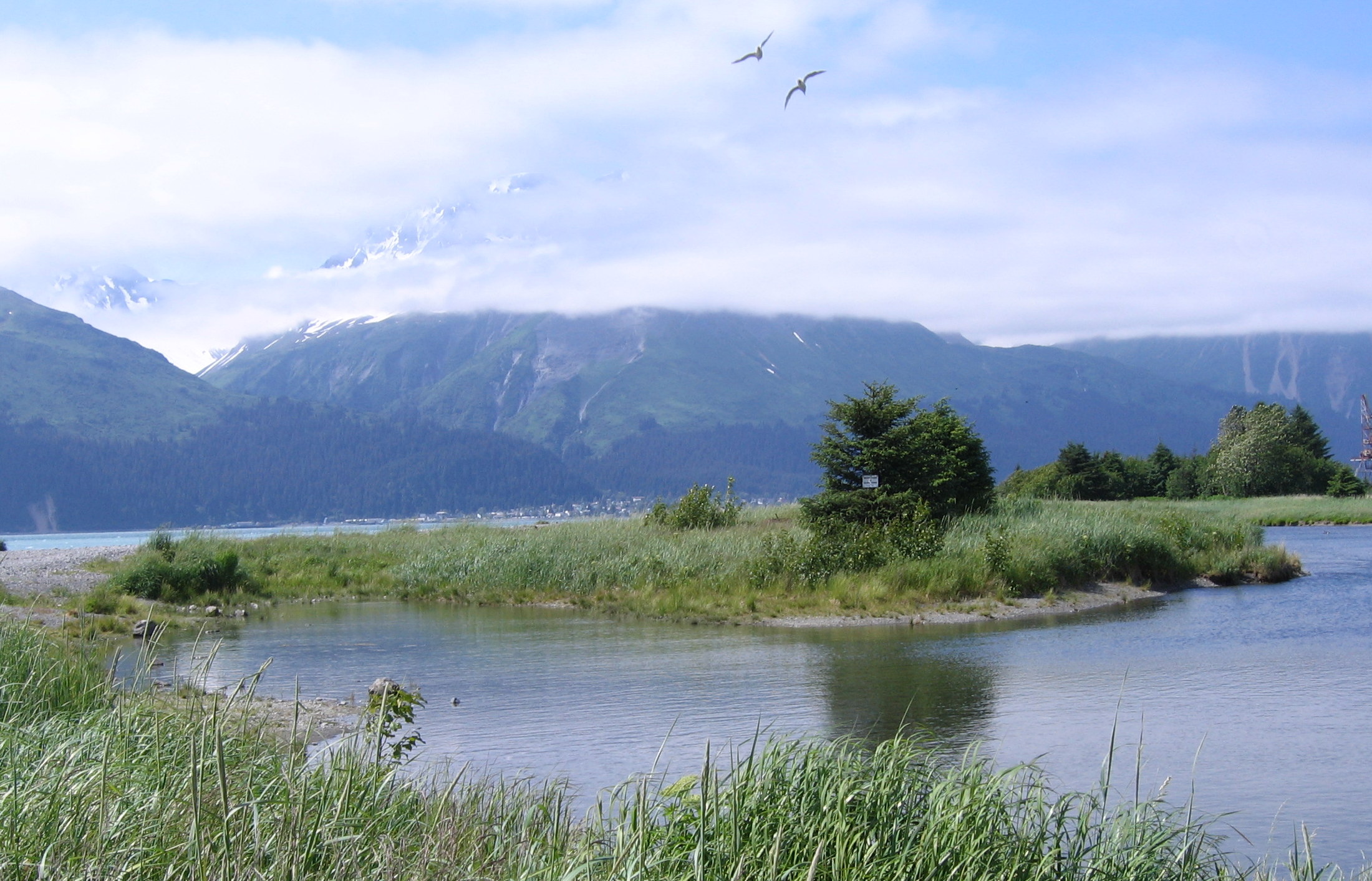Seward is packed on the longest day of the year. Between salmon runs, the Sea Life Center, mountain climbing and glacier viewing, you’re lucky if you find a parking space for your bicycle. Hotels, motels, bed and breakfast services and camping grounds are full. Pedestrians spill out to the numerous walking trails, find their way to King’s Head and back and line up for cruises. There is a little-known secret, however. There is a whole bunch of Seward across the bay.
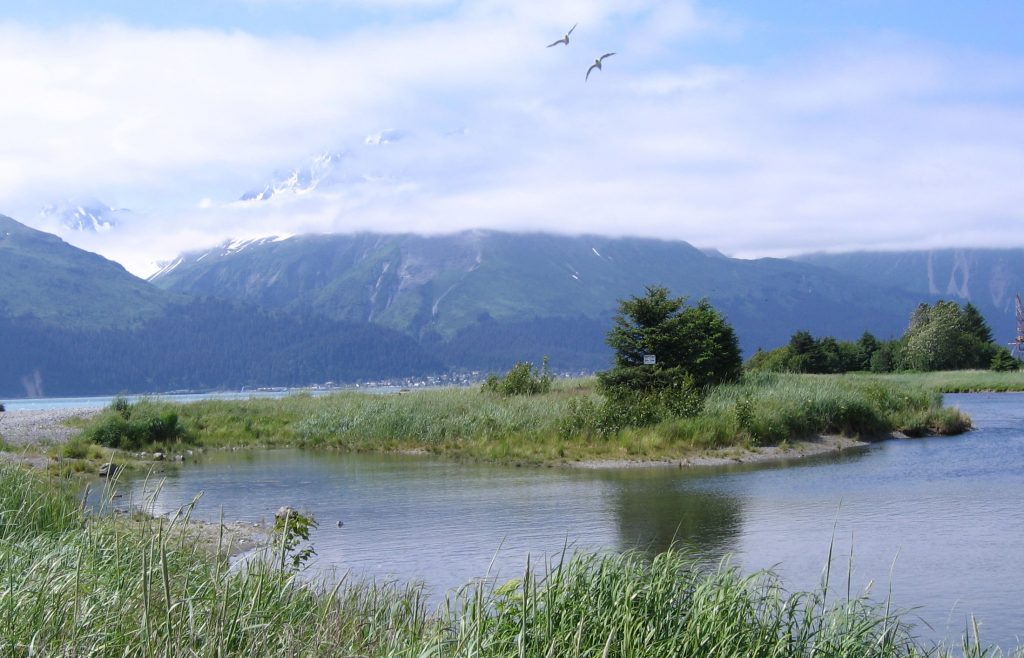
The locals give it the most unusual name of Fourth of July cove. It’s a fisherman’s world, containing shipyards, tide pools, estuaries and fabulous views of Seward across the bay. Busy hours are tidal hours. When the tide rolls in, the fishermen are out there, whether it’s six in the evening or two in the morning. When it rolls out, they go to bed, waiting for the next turn of the tide.
Life is rugged at Seward Across the Bay. No water facilities, no electric hook-up’s, no picnic tables, just a dumpster and some portable potty’s. It was the first time I had slept in a tent for several years. I was grateful to discover I still had my ground bones. I was quite comfortable sleeping on a pad with nothing but the tent lining and soft, grassy ground under it. I also discovered I had developed more sensitivity to the cold. First, my arms and hands got chilly, then my hips. During the third arrangement, I felt the cold move up from the ground. One more rearrangement, and I was finally able to sleep. It was three in the morning and the sun just beginning to peer through the mountains.
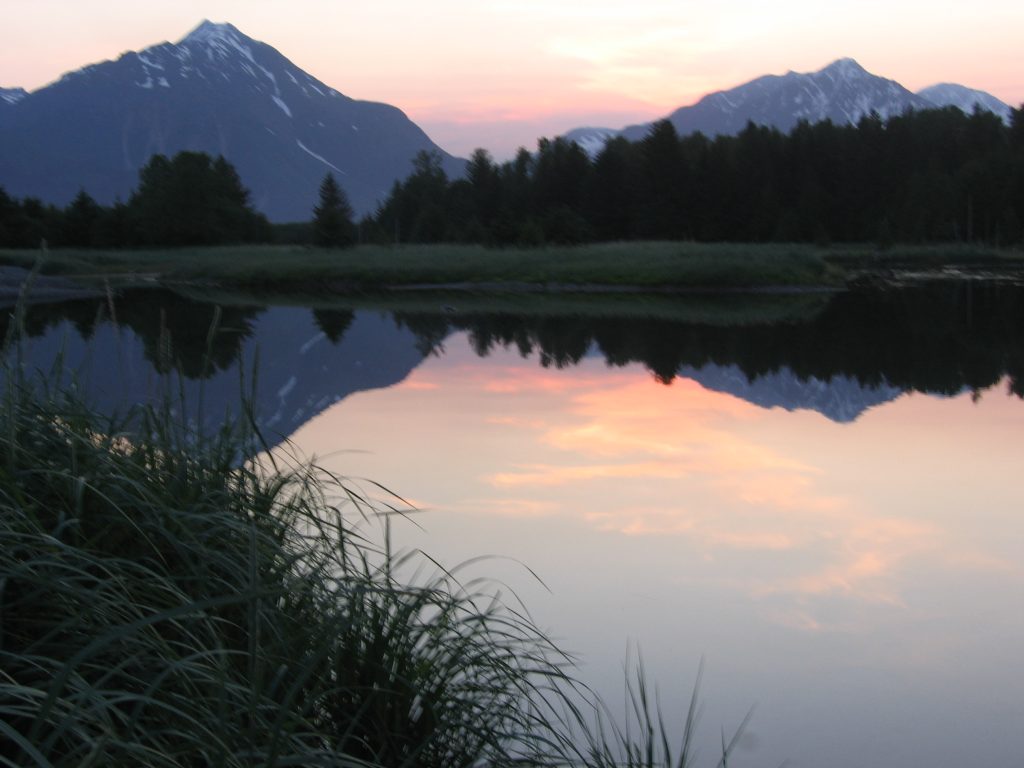
By nine a.m., I was toasting and kicked off all my covers, drowsing in the sauna affect for a while. I finally rolled out of my tent in my shirt sleeves, chiding myself for whimpering over a little cold weather that always rolls around in the early hours of morning and ready for my morning coffee. My camping companions were also busy, climbing into their hip waders for a little fishing, as were other veterans throughout the campgrounds.
One group of fishermen absolutely astonished me. They were all dressed in heavy winter coats, winter caps on their heads, and thick pants. If they hadn’t been struggling into bibbed chest waders, I would have thought they were going skiing. I scratched my head as they walked around the bend. I don’t know how long they remained in their heavy clothing. Perhaps, they evaporated.
I’m not a fisherman. I just like to go camping in places where people fish. There’s something invigorating about watching subsistent people catching their fish to put away for the winter, something natural and placid about it. I watched some people fish from the docked, “Alaskan Enterprise”, and thought to myself, “well there’s a fine example of our enterprise.”
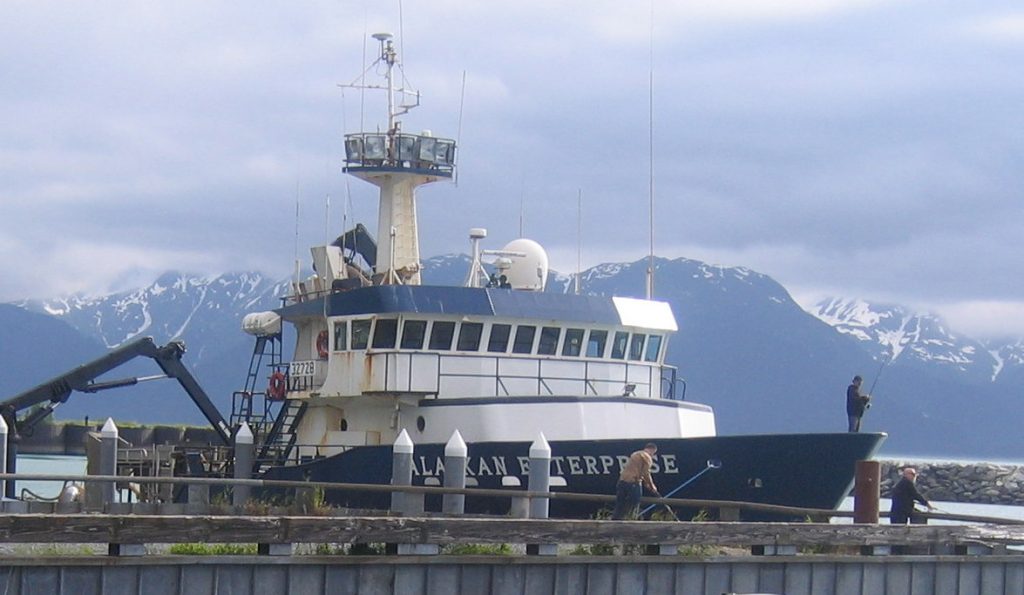
Below the docked boat, an elderly Native man in a wheelchair was fishing from the bottom of the boat ramp. The old man (not too old; maybe eighty) caught a lively one. He backed up his wheelchair to give himself more leverage. He pulled mightily, refusing to let go, and his wife gently helped him by pulling in his line as the fish drew close to shore. It was a tense, exciting movement and I found myself whispering over and over, “you can do it!” Finally feeling a triumphant “yes!” as the fellow reeled his fish in.
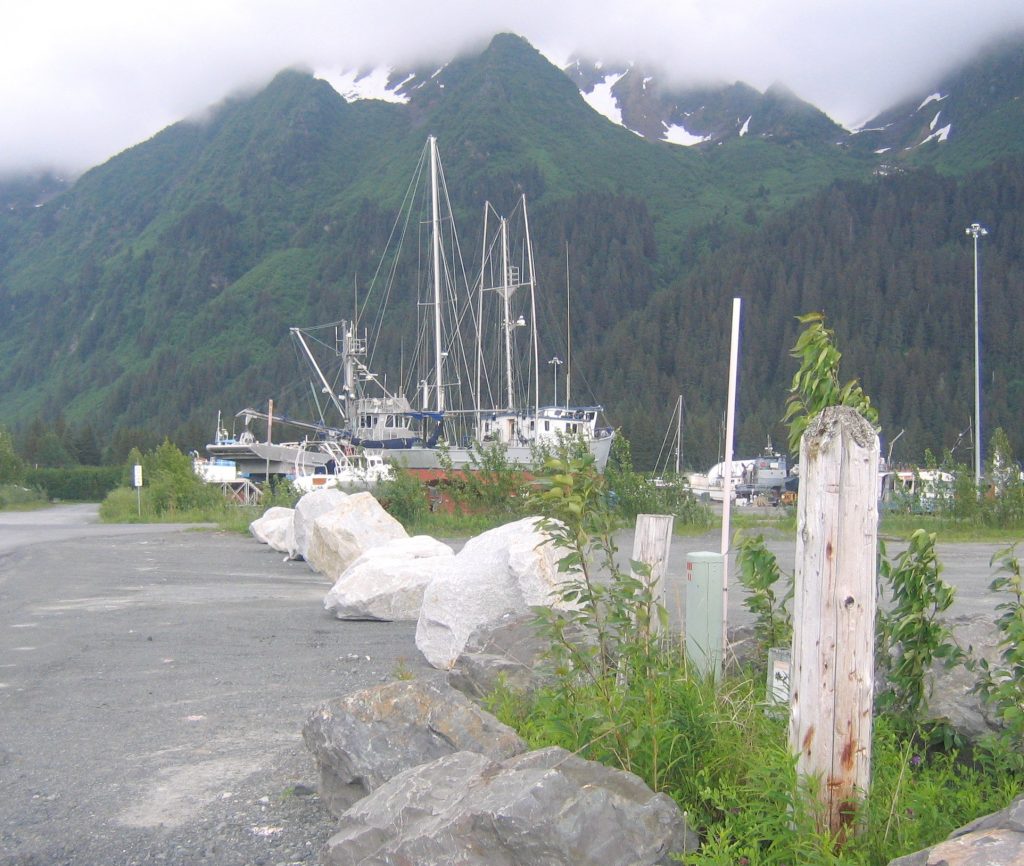
I’m also a critical camper. Veteran Alaskan campers are scrupulous about their surroundings. They generally leave a campsite in as good if not better condition than when they arrived, and often leave their extra firewood for the next camper. This year, there were a few not-so-veteran campers. They strewed their litter around like they had maid service to take care of their mess. I couldn’t stand it any longer. The camper Nazi rose up in me. I pointedly cleaned up a plastic merchandise package, three Walmart plastic bags, a dozen candy bar wrappings, and a plastic meat wrapper, wondering out loud if people who threw their garbage around at campsites did the same thing at home.
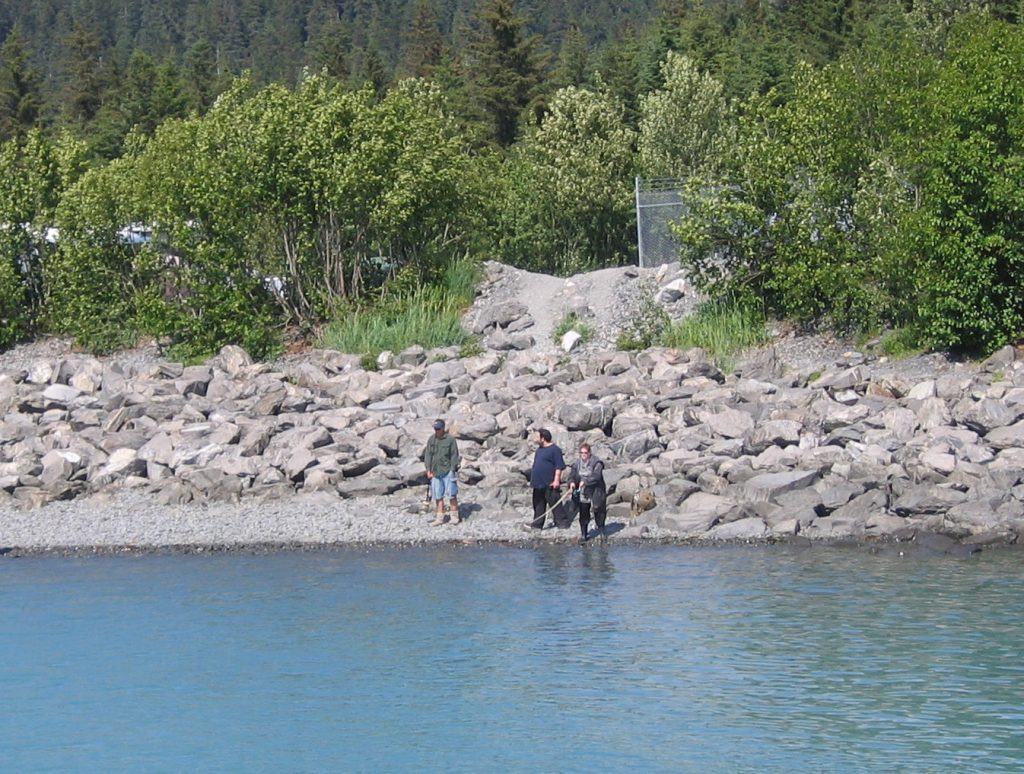
The offenders went into hiding, but I wasn’t done with my rampage. I began cleaning up every piece of plastic I could find, ranting about the damage they do to wildlife. I believe it was in that moment that everybody decided to go fishing. Well, the tide was coming in, so good call.
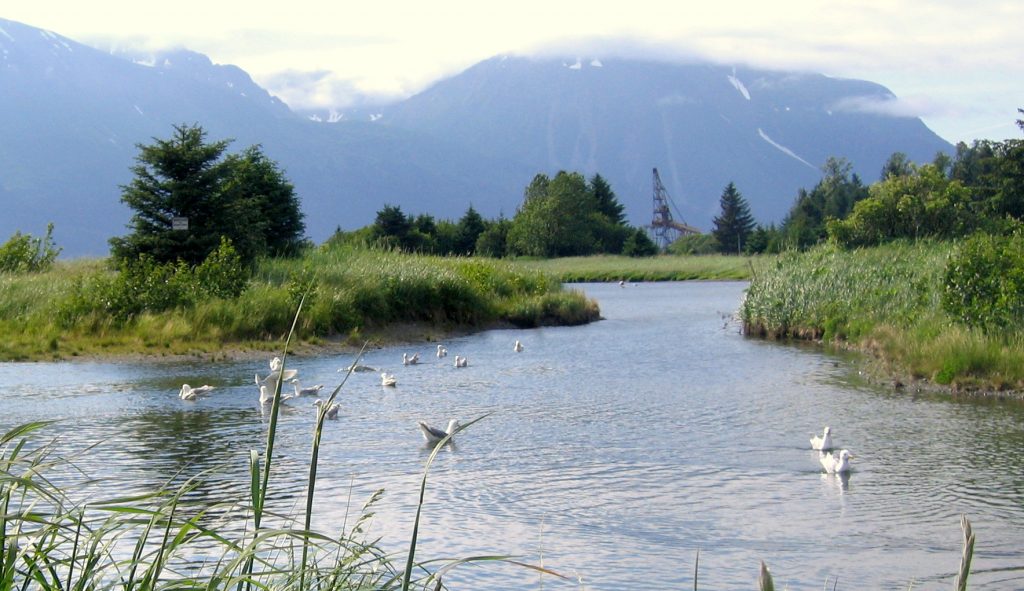
The other nice thing about Seward across the bay is the easy access to Exit Glacier Road. It’s practically across the highway, which mean interchanging one meandering country road rich with Seward locals and lush, green vistas, for another, with a separate destination.
Exit Glacier should be at the top of any list of things to do in Seward. The trail system gives you a choice of several different routes, all well-graded and senior friendly. Climbing the glacier is another matter. All glaciers are treacherous and difficult to climb. For safety purposes, you really shouldn’t climb them at all, only the black, heaving rocks along the sides. You should wear proper climbing boots with good grips, as the rocks can be slippery. However, there is a reward at the top of the glacier. It is the entrance to the Harding Ice Field, a seven -hundred -mile sheet of snow and ice, and one of the four major ice caps in the United States.
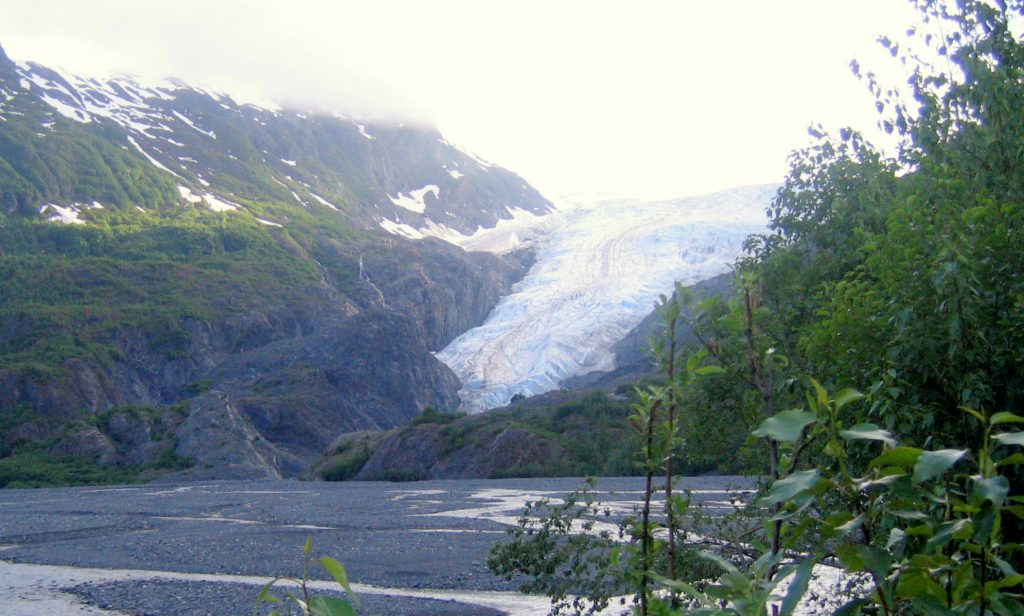
Seward bulges at its seams in the summer, but if you’re a veteran camper, there is more than Seward across the bay for a solution. The seventeen-mile stretch between picturesque Moose Pass and Seward is filled with campgrounds carved out next to creeks, rivers and lakes with an abundance of fresh-water fish. There are hiking trails that meander through alpine meadows and through mountain passes, including the famous Resurrection Trail, an early gold prospecting trail that runs between Seward and Hope, Alaska. If you want some elbow-room, but still want to see the Seward sights, find an out-of-town campsite for the evening, and visit Seward during the day.
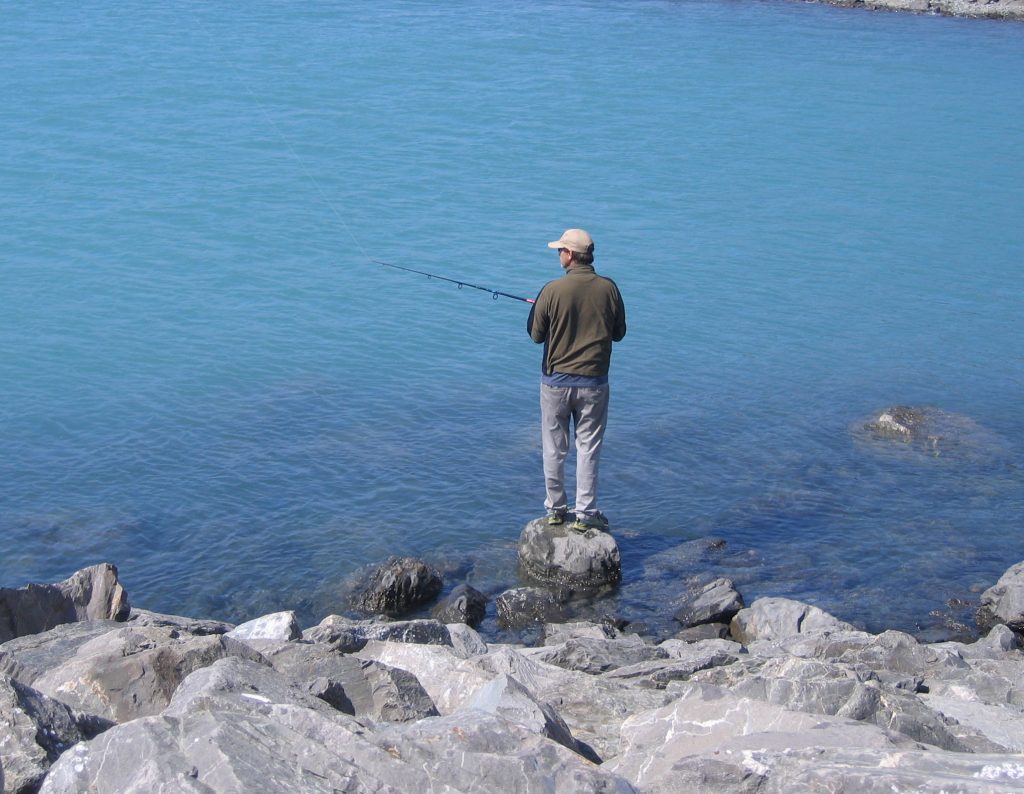
Stick around a while. Visit the local establishments. Sit elbow-to-elbow with fishermen and crusty prospectors and they just might tell you how to get to Seward across the bay.

